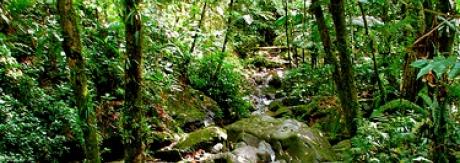
UN worried about consequences of land use
A panel of UN special envoys on food and indigenous people expressed concern that a program to convert at least 1 million hectares of rainforest into biofuel and export-driven crop production could impact the food security of some 50,000 people in the Meruake region of Indonesia.
Meanwhile, another 45,000 people are at risk because of the conversion of 3,000 hectares of land in the Isabela region of the Philippines for sugar cane for biofuels.
The panel said new economic opportunities for regional economies shouldn't put local populations at risk.
"Governments must not be seduced by the promises of developers when assessing large-scale land acquisitions for export-led crops and agrofuel production," Olivier De Schutter, U.N. special envoy on the right to food, and James Anaya, U.N. special envoy on the rights of indigenous peoples, said in a joint statement.
The hveiti case
This underlines the fact that we need to take a holistic approach when producing biofuels, and look at all the potential consequences – both direct and indirect.
This is furthermore the reason why it makes sense for Denmark to have a national production of biofuel, based on a raw material that we have plenty of in Denmark, and where you also make use of the co-products from the production, thereby optimising the outcome of the feedstock.
Source: upi.com, 23 May 2012
Follow the developments within biorefining. hveiti regularly informs about our efforts to improve the environment.
Copyright © 2011 | Hveiti | Design Rabotnik




